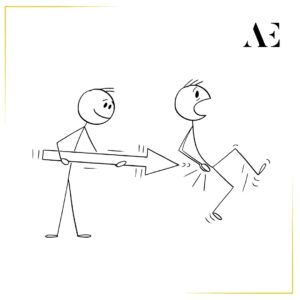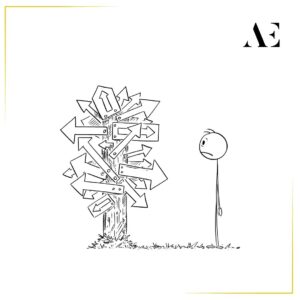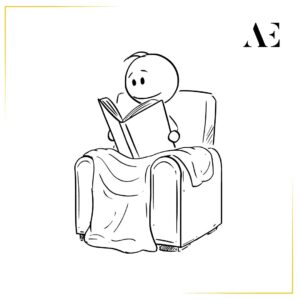IN or OUT?
…the way out of the darkness
A while back I was talking to a friend about “visibility” in the market. No matter what profession you might represent, we all know, that if you are not making yourself visible (especially online), you are pretty much inexistent. The scope of the discussion was not to state the obvious, obviously… but trying to figure out how much of what people show online is true. And again, we were not talking about teenage networking sites, but professional pages where people give awards to themselves, relate endless success stories and at the same time, of course, trying to sell you something, that would also make you just as happy and successful. Main question was, how much of these self-validating manifestos are true…
At some point my friend told me: “Please! People don’t want the truth! People just want to get by…” Apparently this is not a newfound thing, it has been the same since Plato. I remembered his cave analogy, from The republic. Here, he describes the situation, where people are kept prisoners in a cave, with their backs to the cave opening. They are tied so tightly, that they cannot even move their heads to the left or to the right. Time passes, with them watching only shadows pass by, projected to the back of the cave wall by the light of the fire at night. As time passes, this becomes their reality, where the world is composed of their chains, the flickering light of the fire and the shadows on the wall. In a chain of typical Socratic rhetorics, one of these guys gets out. He is guided to the top of the mountain in the sunlight, the light of the sun burning his eyes and skin. But after he adjusts, he cannot anymore unsee what he has seen: the truth is, they are kept prisoners. There is a beautiful world out there. In another twist of the dialogues, he is put back in the cave. Now we all know what will happen: his eyes cannot adjust to the darkness, and he cannot anymore see the shadows in the back of the cave. No matter how many stories he is telling the others, about what he has seen, to everyone else, he is just someone who left, and came back blind. Now let’s assume there comes another “liberator”, offering the cave people a chance to get out of their shackles and walk in the sunlight. Would they go? Considering that the only person ever to leave, came back “blind”, they would surely kill him, and not join him! People don’t want the truth, people just want to get by…
But going back to the original topic, we still see a lot of “seers”, “gurus” and all sorts of experts selling wonder solutions to all your problems. How is this possible? Is it at all possible? Are people able to just “download” other peoples algorithms and implement the next day as their own? Highly unlikely.
But this makes me remember another story.
In Sheldon Kopp’s Book If You Meet the Buddha on the Road, Kill Him! He describes an old Sufi legend. Once upon a time, there was a wanderer, who wandered to foreign territory, arriving to the land of the fools. Here, he noticed, that people are fleeing from the fields in great terror. When he asked, why are they all running away, they tell him the story of the great monster living in the fields. The brave wonderer went on a quest to find the monster. What he found, was that the ominous monster the locals were fearing, was a watermelon. He then took out his knife, cut down the watermelon and took it to the village. He started slicing it and inviting the locals to the feast. The villagers got so terrified, that they took their iron forks and banished the wonderer out of the village. A while later came another wanderer, who when he found out, that the locals are terrified of the watermelon, quickly tiptoed away from the fields, joining the villagers in their delusions. However, knowing there is nothing to fear about a watermelon, he managed to slowly teach the villagers not to fear the melons. More so, in time, he taught them to start planting and harvesting them, themselves. Turns out, there is no quick fix to the process of change.
Now why is this relevant? It seems, that along thousands of years, the human history keeps relating such stories, still we keep expecting the “wonder pill” that will solve all our problems. This might be the reason, why the self-help industry is still so proficient is selling super solutions that will fix your problems in a day. People just want to get by…
But what does getting by mean? Let’s assume you are trapped in a box. However, you can feel something is not right, so you decide you want to make some progress. There comes a helper, who offers to push the box along for you for a while. So you agree and he does. You made progress, but you are still stuck in a box… Is this sufficient? You are still trapped, but this time it’s not only your box you are stuck in, but also in a relationship of codependency. This might be fruitful business to the ones offering box-pushers, but bad for the one paying. Past the obvious financial losses, the worst is, that there is no faster way to ruin your own self-esteem than to get on this treadmill and get nowhere. You feel that you keep doing your part, but past the little progress you make at each try, you keep feeling worse and worse. Why? Because the progress in not real. It’s just an illusion. True help takes time, work, heartache and in most cases it will be a lot worse before it gets better.
It seems, that since ancient times, history is giving us permission, to take the time to learn and see the truth. May it be a job, a friend, a partner or a “guru” that offers to be the solution to all your problems, it’s worth holding on to a grain of skepticism. Find a person to help you first see that you are in a box. Help you get out and walk you a few steps along the way.
It’s worth knowing the truth and having a slice of that watermelon.




